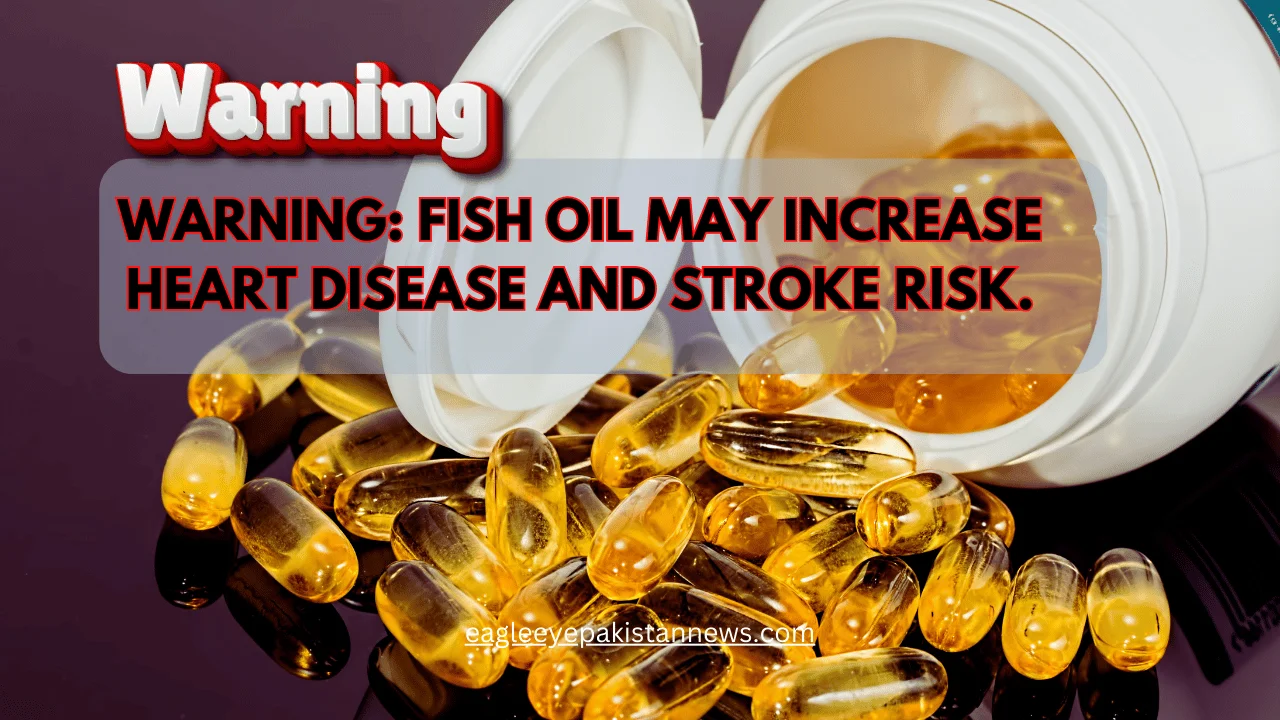Health and Fitness
How to get clear skin naturally at home?

Your face has to be cleaned, moisturized, and protected daily. An at-home face mask can give you a radiant complexion on your special day. Are you looking for how can I make a facial at home? How to get clear skin naturally at home? how to get a clear face naturally? Here we depart with some advice.
While dealing with the stress that the days leading up to your marriage might bring, applying a DIY facial mask will not only help you take care of your skin. Still, it will also give you a chance to unwind, take a moment to breathe, and enjoy a moment just for you.
How to get clear and glowing skin naturally at home?
You may utilize these easy face mask recipes. It will only take a few minutes to add these to your skincare routine, but remember that since all skin types are unique and require specific care, avoid trying them out the day before your wedding.
How to do a facial cleansing at home?
Before applying any facial mask, you must follow the following steps for correct skin cleansing:
- Identify your skin type: essential to know what types of homemade masks are suitable for your face
- Clean your face: masks do not replace makeup remover or your usual soap. So an excellent facial cleansing is essential.
- Do not reuse mixes or save leftovers.
- You can apply them once or twice a week.
- Consult a professional before making these processes part of your facial care routine.
If you are looking for a solution for how to get clear skin naturally at home, then the solution is simple if you’ve ever wondered how to make a homemade face mask. Your finest secret for clear and glowing skin is in your kitchen; you don’t need complicated recipes to go along with your facial cleansing routine.
Use cucumbers to create DIY face masks that will moisturize the skin. In your facial beauty routine, cucumber is an excellent ally because it moisturizes and has anti-inflammatory properties naturally. It lessens expression lines, blemishes, and spots. It is an excellent source of vitamin A, which is necessary for collagen production.
Lemon and cucumber mask
1 lemon’s cucumber juice
Juice and cucumber should be thoroughly blended to create a uniform mixture. After applying the mixture to the face, please wait 15 minutes before washing it off with cold water.
All skin types can use this DIY vegan face mask to keep their skin healthy and nourished. This homemade face mask should only be used at night to prevent stains on your skin from the lemon juice.
Honey, cucumber, and olive oil mask
half a cucumber
Honey, 1 tablespoon
Olive oil, 1 tbsp
To make a homogeneous paste, crush the cucumber and combine it with the remaining ingredients. Your face should be covered with a thin layer, which you should leave for 20 minutes before rinsing off with warm water. This moisturizing mask will assist in cleansing and moisturizing your skin without leaving a greasy behind.
Another quick and natural way how to get clear skin naturally at home is to cleanse your skin if you don’t have a cucumber.
Honey and banana face mask
One banana
2 teaspoons of honey
1 tablespoon of yoghurt, plain
Combine all the components until the mixture forms a creamy texture; use on the face and let sit for fifteen minutes. Use lots of water to wash and rinse.
Here is How to get clear glass skin naturally at home secret: Deep facial cleansing: it’s time to exfoliate
You can use an exfoliating mask to give your face a thorough DIY cleaning. You may clear your pores, get rid of dead skin cells, and even out the tone by doing this.
How can pollutants be removed from the face? Since you can mix sugar with various oils to produce a fresh exfoliant for your facial cleansing kit, it is one of the components frequently used as a simple and DIY exfoliator.
Olive oil and sugar face mask
3 sugar spoonfuls
Olive oil, 2 tablespoons
Apply the mixture of the two components to the face in circular motions to cleanse. Remove it with lukewarm water after leaving it on for 10 to 15 minutes.
Coffee, sugar, and coconut oil Scrub
Sugar, 5 tablespoons
4 teaspoons of coffee grounds
Coconut oil, 2 tablespoons
Apply the mixture lightly to the facial skin after mixing the ingredients. Use a lot of cold water to wash. This concoction can be applied to your body as well. Coffee has a firming and cellulite-reducing impact.
Rice, a vitamin C and omega 6 sources, is an alternative exfoliator that encourages elastin formation and delays ageing. Additionally, its balancing and antibacterial qualities make it fantastic for use on oily skin to reduce shine and imperfections.
If you are interested in weight loss then we have simple home ways then read our article. How to lose weight at home easily?
Rice mask
- 1 handful of rice
- 1 tablespoon coconut oil
Grind the rice until you get a fine grain. Combine it with a tablespoon of coconut oil until you have a homogeneous mixture. Apply it on your face with circular movements. Let it act for a few minutes, and rinse with cold water. This mixture will help you to revitalize, give luminosity and improve the texture of your skin.
If you want to know, What is the best homemade face mask and how to get clear skin naturally at home? You will only know after trying the cover that best suits your skin type. And remember that after using a face mask, you must follow the steps of your daily routine, moisturizing and finishing with sunscreen. The latter is significant because the skin is susceptible after cleaning.
a rice mask
rice, one handful
Coconut oil, 1 tbsp
Rice should be ground into a fine grain. It should be mixed thoroughly with one spoonful of coconut oil. Apply it in circular motions to your face. After giving it some time to work, rinse it with cold water. You can revitalize, brighten, and improve the texture of your skin using this mixture.
Which homemade face mask works the best? You know, only after testing the cover that best complements your skin tone. And keep in mind that you must continue with your daily regimen by moisturizing and ending with sunscreen after using a face mask. The latter is vital since, following cleansing, the skin is vulnerable.
Health and Fitness
Warning: Fish oil may increase heart disease and stroke risk

Fish oil may increase heart disease and stroke risks. Long considered a healthy supplement, new research has raised questions about the health consequences of fish oil. This blog will cover research and debates on fish oil, heart disease, and stroke. Let’s first define fish oil and its nutritional advantages.
- Fish oil may increase heart disease and stroke risks. Long considered a healthy supplement, new research has raised questions about the health consequences of fish oil. This blog will cover research and debates on fish oil, heart disease, and stroke. Let's first define fish oil and its nutritional advantages.
- Definition, source, and nutritional advantages of fish oil: frequent health and wellness purposes
- The Link Between Fish Oil and Heart Disease- Studies and research on the effects of fish oil on heart health- How fish oil may help prevent heart disease- Possible risks and side effects of fish oil
- Research on fish oil and heart health:
- How fish oil may prevent heart disease:
- Fish oil dangers and adverse effects:
- Stroke and Fish Oil Controversy:
- Possible causes of the discrepancies:
- Possible Influences of Fish Oil to Increase the Heart Disease:
- Omega-3 Fatty Acid Alternatives:
- Advice and precautions:
- Fish oil dangers for heart disease and stroke: conclusion and concluding comments.
- The Fish Oil-Stroke Controversy Expert Opinions on the Relationship Between Fish Oil and Stroke
- Genetics, dosage, and quality of fish oil supplements, pre-existing health conditions, and lifestyle variables may affect the relationship between fish oil and heart disease or stroke.
- Alternative Omega-3 Fatty Acids: Plant-based sources, supplements other than fish oil, advantages, and drawbacks.
- Omega-3s from plants and their benefits:
- Omega-3 supplements other than fish oil and their efficacy:
- Advantages and disadvantages of these omega-3-boosting options:
- Recommendations and Precautions- Current recommendations for fish oil intake- Precautions for those considering taking fish oil supplements- Conclusion and final thoughts on the potential risks of fish oil for heart disease and stroke.
- Conclusion about Fish Oil to Increase the Heart Disease:
Fish oils are produced by fatty fish such as salmon, mackerel, and tuna. It’s rich in omega-3 fatty acids, which our bodies need. Fatty acids with anti-inflammatory characteristics are essential for heart, brain, and general health.
Relationship between fish oil and heart disease
Many studies have examined fish oil’s heart health benefits. Some studies have yielded excellent results, while others have raised concerns about potential hazards. Fish oil may protect against heart disease by lowering triglycerides, blood pressure, and blood clots. Contradictory data have also raised questions about fish oil’s effect on heart disease.
Heart disease and Fish Oil Controversy:
Besides heart disease, fish oil increases stroke risk. Regular fish oil consumption may raise stroke risk, although other studies have shown no link. This conflicting evidence has divided experts on fish oil’s impact on stroke risk.
Possible Influences on Fish oil may increase heart disease:
Different reasons may explain the inconsistent data on fish oil and heart disease or stroke. These include heredity, fish oil supplement dose and quality, pre-existing health issues, and lifestyle. These considerations must be taken into account when assessing fish oil’s heart health hazards.
Omega-3 Fatty Acid Alternatives:
For individuals concerned about fish oil’s hazards, there are other omega-3 alternatives. Flaxseed, chia seeds, walnuts, and omega-3 supplementation other than fish oil are examples. This blog will discuss the pros and cons of these options.
Advice and precautions:
To help you make educated choices, we will review fish oil consumption guidelines and precautions for supplement users. You must adhere to these guidelines to safely use fish oil for heart health.
Conclusion:
To fully understand fish oil’s impact on heart disease and stroke, more research is necessary. Although fish oil has many health advantages, it’s important to know the hazards and take measures. Stay tuned for additional details on this topic in future chapters.
Definition, source, and nutritional advantages of fish oil: frequent health and wellness purposes
Fish oil supplements have become popular due to their health advantages. What is fish oil and where does it originate from? This chapter defines fish oil, discusses its nutritional advantages, and discusses its health and wellness purposes.
Fish Oil Definition and Source:
Fish oil is derived from fatty fish such as salmon, mackerel, and tuna. It is rich in omega-3 fatty acids, which our bodies cannot make. Omega-3 fatty acids boost heart, brain, and joint health and are essential for optimal health.
Cold-water, oily fish with a high omega-3 content produce fish oil. The fatty tissues of this fish preserve omega-3s from algae and other marine species. Molecular distillation removes contaminants and concentrates omega-3 fatty acids from the tissues.
Fish Oil Benefits Nutrition:
Fish oil is high in EPA and DHA omega-3 fatty acids. These fatty acids reduce inflammation, improve heart health, and boost cognitive function.
Inflammation is a normal reaction to damage or illness, but persistent inflammation can cause heart disease, diabetes, and arthritis. Omega-3s, especially EPA, decrease inflammation and may prevent certain disorders.
Researchers have extensively studied fish oil for its potential to prevent heart disease. They may help enhance blood vessel function and minimize blood clot risk.
Fish oil also boosts brain function and mental wellbeing. DHA, a fundamental component of brain cell membranes, may improve cognition, memory, and mood. Fish oil may help with sadness and anxiety, according to several studies.
Medical Benefits of Fish Oil:
Fish oil is a popular supplement for a variety of reasons, including its health benefits. People often use it to promote brain function, heart health, and inflammation. Fish oil may alleviate joint discomfort and stiffness in rheumatoid arthritis.
Beauty products use fish oil because it may improve skin health and appearance. Fish oil’s omega-3 fatty acids may help decrease wrinkles and fine lines by hydrating the skin.
Pregnant women should also take fish oil to aid in brain and eye development. Omega-3 fatty acids may also help youngsters with ADHD, according to some research.
Fish oil is a multipurpose supplement with many health advantages. As with any supplement, ask a doctor before using fish oil to confirm it’s safe and right for you.
In the following chapter, we’ll discuss fish oil’s possible relationship to heart disease and its stroke prevention dispute. Stay tuned!
The Link Between Fish Oil and Heart Disease- Studies and research on the effects of fish oil on heart health- How fish oil may help prevent heart disease- Possible risks and side effects of fish oil
Due to its potential health advantages, fish oil, made from oily fish like salmon, mackerel, and tuna, has become a popular supplement. Studies have widely explored the benefits of fish oil for heart health, suggesting it may even prevent heart disease. Fish oil may potentially increase heart disease and stroke risk. This chapter discusses fish oil and heart disease, including studies, how it may prevent heart disease, and dangers and adverse effects.
Research on fish oil and heart health:
Numerous studies have examined fish oil’s heart health advantages. Fish oil supplements reduced heart disease and stroke risk in a Journal of the American College of Cardiology research study. A second American Journal of Clinical Nutrition study indicated that fish oil supplementation lowered heart disease risk.
How fish oil may prevent heart disease:
Fish oil includes omega-3 fatty acids (EPA and DHA), which are anti-inflammatory and may decrease triglycerides and blood clot risk. Because of these advantages, fish oil may reduce heart disease. Fish oil may reduce blood pressure and enhance blood vessel function, which are beneficial for heart health.
Fish oil dangers and adverse effects:
Fish oil may improve heart health, but it also has risks and negative effects. Research in the Journal of the American Heart Association indicated that high fish oil supplement dosages may increase atrial fibrillation risk. Fish oil can also cause nausea, diarrhoea, and a fishy flavour.
Stroke and Fish Oil Controversy:
Some studies have linked fish oil to a lower risk of heart disease, but the risk of stroke is unclear. According to a study published in the New England Journal of Medicine, fish oil intake does not reduce stroke risk and may increase hemorrhagic stroke risk. This topic has raised questions about the benefits of fish oil for heart health.
Possible causes of the discrepancies:
Fish oil and stroke risk studies may yield inconsistent results depending on supplement dose and quality. EPA and DHA levels and purity vary widely in fish oil supplements. Fish oil may also impact heart disease and stroke risk due to genetics, pre-existing health issues, and lifestyle variables.
Possible Influences of Fish Oil to Increase the Heart Disease:
Genetics, dose, quality, pre-existing health issues, and lifestyle variables may affect the link between fish oil and heart disease or stroke. Fish oil may work differently for people with certain genetic predispositions or health issues. Lifestyle variables such as diet and exercise can also affect heart health and interact with fish oil.
Omega-3 Fatty Acid Alternatives:
Alternative omega-3 fatty acids are available for people concerned about fish oil’s heart disease and stroke dangers. Flaxseed, chia seeds, and walnuts contain alpha-linolenic acid (ALA), which the body converts into EPA and DHA. Other omega-3-containing supplements include krill and algae oil.
Advice and precautions:
The American Heart Association advises two meals of fatty fish each week for omega-3 fatty acids. Consult a doctor before using fish oil supplements, and carefully evaluate the dosage and quality. Patients who have pre-existing diseases or are taking other drugs should also take precautions.
Fish oil dangers for heart disease and stroke: conclusion and concluding comments.
Although its effects on heart disease and stroke risk are still under debate, fish oil may help heart health. Before starting a fish oil regimen, people should weigh the dangers and benefits and see a doctor. A balanced diet and regular exercise can also help heart health.
The Fish Oil-Stroke Controversy Expert Opinions on the Relationship Between Fish Oil and Stroke
For years, fish oil has been a popular supplement due to its health advantages. Many people know that fish oil can enhance heart health and lower the risk of heart disease. According to recent studies, fish oil may also cause stroke. Experts disagree on whether fish oil causes strokes.
A conflicting stroke risk study on fish oil:
Fish oil has had a mixed impact on stroke risk in several trials. Some research shows fish oil may raise stroke risk, while others find no link. 2018 Journal of the American Heart Association research links omega-3 fatty acids in fish oil to stroke risk in older people. In contrast, 2019 European Heart Journal research revealed no association between fish oil consumption and stroke risk.
Possible causes of the discrepancies:
There are various possible explanations for the contradicting fish oil stroke risk data. It may be attributed to differences in research design and technique. Some research examined specific populations or fish oil supplements, whereas others examined a wider range. This can cause results to vary, making conclusions challenging.
The amount and grade of fish oil supplements used in the research may also explain the discrepancies. The type and quantity of omega-3 fatty acids in fish oil affect its efficacy. The supplement’s quality and purity may also have an impact on its health benefits. Pure fish oil may provide more advantages than low-quality or polluted fish oil
Expert comments on fish oil and stroke:
According to contradicting studies, experts disagree on whether fish oil causes strokes. Some researchers feel fish oil’s heart health advantages exceed its stroke risks. Fish oil may lessen the risk of heart disease, a key stroke risk factor, according to the data. Some doctors advise against using fish oil supplements, especially in large amounts, owing to stroke risk.
Factors affecting fish oil and heart disease/stroke:
Genetics, supplement dose and quality, pre-existing health issues, and lifestyle variables may influence the relationship between fish oil and heart disease or stroke. Fish oil may be riskier for people with a family history of heart disease or stroke, especially if they are genetically predisposed. Fish oil for heart health may also depend on supplement dose, quality, and pre-existing health issues like high blood pressure or diabetes.
Alternative omega-3 sources:
For people concerned about fish oil’s hazards, other omega-3 fatty acids may be as healthy. Flaxseeds, chia seeds, and walnuts contain alpha-linolenic acid (ALA), which the body converts to omega-3s. Krill and algal oils are omega-3 supplements besides fish oil.
Advice and precautions:
Experts disagree on fish oil’s heart disease and stroke dangers. For optimal omega-3 fatty acid intake, the American Heart Association recommends eating fish twice a week. Consult a doctor before using fish oil supplements, and carefully evaluate the dosage and quality. Heart disease and stroke survivors should also take care and check their health.
In conclusion, the fish oil and stroke dispute highlights the need for more study and prudence when supplementing. Fish oil may assist heart health, but before changing your diet or supplement routine, see a doctor. A healthy lifestyle, nutrition, and frequent medical checkups may reduce heart disease and stroke risk the most.
Genetics, dosage, and quality of fish oil supplements, pre-existing health conditions, and lifestyle variables may affect the relationship between fish oil and heart disease or stroke.
Fish oil has long been recommended for heart health. High omega-3 fatty acid concentrations reduce heart disease and stroke risk. Recent research has raised concerns regarding fish oil’s effects on certain disorders. Experts and consumers question fish oil’s safety and efficacy in avoiding heart disease and stroke. This argument centres on elements that may affect fish oil and heart health. This chapter will examine these elements and their possible effects on fish oil and heart disease or stroke.
Genetics and fish oil’s heart health effects:
Genetics may link fish oil to heart disease or stroke. The way we react to fish oil depends on our DNA. Because of genetics, fish oil may affect heart health differently in certain people. Recently, researchers linked a genetic mutation to an increased risk of heart disease among users of fish oil supplements. This implies that heredity may affect fish oil’s heart disease and stroke prevention.
Fish oil supplement dosage and quality, and heart disease and stroke risk:
Fish oil supplements may affect heart health, depending on dosage and quality. Higher dosages of fish oil may reduce heart disease and stroke risk, according to certain research. Overdosing on fish oil may increase the risk of bleeding. To maximise advantages, follow dose requirements and get high-quality fish oil supplements from trusted providers.
Fish oil with pre-existing health conditions:
Fish oil supplements may affect people with diabetes, high blood pressure, or high triglycerides differently. Fish oil may lower triglycerides in people with high levels, but not in those with normal levels. Some health problems that might raise the risk of fish oil side effects include bleeding or gastrointestinal troubles. If you have pre-existing health issues, see a doctor before using fish oil supplements.
Lifestyle variables with fish oil and heart disease/stroke:
Lifestyle variables such as diet and exercise may also affect fish oil and heart health. A nutritious diet with fish and other omega-3 fatty acids and regular exercise may reduce heart disease and stroke risk. However, an unhealthy lifestyle with a high consumption of processed foods and little exercise may negate the benefits of fish oil supplements. A healthy lifestyle and fish oil supplements are essential for heart health.
In conclusion, fish oil may help heart health, although several circumstances may affect this. Fish oil may prevent heart disease and stroke, depending on genetics, supplement amount and quality, pre-existing health issues, and lifestyle. For the best health results, consider these variables and see a doctor before starting a new supplement program.
Alternative Omega-3 Fatty Acids: Plant-based sources, supplements other than fish oil, advantages, and drawbacks.
Recent research has raised concerns about fish oil’s heart disease and stroke risks, despite its longtime use as an omega-3 supplement. Many people now look for alternate sources of vital fatty acids. We’ll discuss plant-based omega-3 sources and supplements in this chapter. We will also analyse the pros and cons of these omega-3-boosting options.
Omega-3s from plants and their benefits:
Chia, flax, hemp, walnut, and soybean seeds contain omega-3 fatty acids. The body converts alpha-linolenic acid (ALA) into EPA and DHA, which are healthier omega-3s. However, the conversion rate of ALA to EPA and DHA is poor, making it challenging to fulfil the necessary consumption from plant-based sources.
Omega-3 supplements other than fish oil and their efficacy:
Alternative omega-3 fatty acid supplements include krill oil, algal oil, and cod liver oil. Krill oil contains EPA and DHA from small crustaceans. Vegans often utilise algal oil, a plant-based source of EPA and DHA.
Advantages and disadvantages of these omega-3-boosting options:
Plant-based sources and other supplements do not increase heart disease and stroke risk, like fish oil. They also provide a vegetarian and vegan alternative to fish and fish oil.
As indicated, ALA converts poorly to EPA and DHA, making it difficult to fulfil the necessary consumption. Supplements may also be too expensive for others. Before adding these options to your diet, do your homework and contact a doctor because their quality and efficacy might vary.
In conclusion, new research has raised concerns regarding heart disease and stroke risks, despite the long-standing marketing of fish oil as a source of omega-3 fatty acids. To improve omega-3 consumption, plant-based sources and supplements are options. Before changing your food or supplement habit, consult a doctor and consider the pros and cons of each option.
Recommendations and Precautions- Current recommendations for fish oil intake- Precautions for those considering taking fish oil supplements- Conclusion and final thoughts on the potential risks of fish oil for heart disease and stroke.
Age, gender, and health status affect fish oil intake recommendations. At least two meals of fatty fish each week give 250–500 mg of omega-3 fatty acids, according to the American Heart Association. Heart disease patients should consume 1 gramme of omega-3 fatty acids daily. These guidelines encourage getting omega-3s from real foods, not fish oil pills.
Be cautious and check with a doctor before using fish oil pills. In particular, people with a family history of heart disease and stroke, current cardiac diseases, or risk factors including high blood pressure or cholesterol are at increased risk.
Drug interactions should be considered. Tell your doctor about any supplements you take, as fish oil supplements may interfere with blood thinners and high blood pressure drugs. If you have a bleeding condition or take blood thinners, be aware that fish oil supplements may increase the bleeding risk.
Fish oil supplement quality and purity are very significant. Mercury-contaminated supplements might affect your health. Choose supplements with third-party purity and potency certification.
In conclusion, fish oil may enhance heart health, but it’s crucial to know the hazards and make educated decisions. When feasible, get nutrients from natural foods and see a doctor before starting a supplement program. For optimal effects, use a high-quality fish oil supplement and follow the dose. With care and informed choices, fish oil can benefit a heart-healthy lifestyle.
Conclusion about Fish Oil to Increase the Heart Disease:
Research continues to debate and contradict this controversial supplement for heart disease and stroke. Fish oil may improve heart health, but other research has raised concerns about its dangers and adverse effects. Before using fish oil for heart health, people should be aware and careful.
Fish Oil Definition and Source:
We use the tissues of salmon, mackerel, and sardine to make fish oil, a nutritional supplement. It is high in omega-3 fatty acids such as EPA and DHA, which our bodies cannot make but are essential for our health. People widely sell and recommend fish oil supplements due to their health benefits.
Fish Oil Benefits Nutrition:
Fish oil is abundant in omega-3 fatty acids, especially EPA and DHA, which provide several health advantages, including heart health. Fatty acids with anti-inflammatory qualities may lessen the risk of chronic disorders, including heart disease and stroke. Fish oil contains vitamins A and D, as well as other essential components for good health.
Relationship between fish oil and heart disease
Many studies have examined fish oil’s heart health benefits. Fish oil may decrease triglycerides, blood pressure, and cardiac function, reducing the risk of heart disease. Further study is necessary to clarify the association between fish oil and heart disease.
Fish oil risks and side effects:
Fish oil may have health benefits but also risks. High dosages of fish oil may increase bleeding risk, especially in people on blood-thinning medicines. You may also have nausea, diarrhoea, and a fishy flavour.
Stroke and Fish Oil Controversy:
The impact of fish oil on stroke risk and heart disease has been a topic of debate. Some research suggests fish oil may lower stroke risk, but others do not. Differences in genetics, lifestyle, and fish oil type and dosage may account for the contradictory results.
Fish oil may enhance or harm heart health and stroke, depending on several factors. Variables include genetics, the quantity and quality of fish oil supplements, pre-existing health issues, diet, and exercise. These elements must be considered while assessing fish oil’s heart health effects.
Omega-3 Fatty Acid Alternatives:
Plant-based and other omega-3 fatty acid supplements are available for people who cannot eat fish oil. These include flaxseed, chia, and algae supplements. These options may offer health advantages, but they may not be as effective as fish oil.
Advice and precautions:
The American Heart Association advises two meals of fatty fish each week for heart health. Before using fish oil supplements, see a doctor and study product labels to confirm dose and quality. Consider the dangers and adverse effects, especially for people with pre-existing health concerns.
You maybe interested to know about How To Lose Weight At Home In 3 Months.
Ending and Reflections about Possible Influences of Fish Oil to Increase the Heart Disease:
In conclusion, fish oil may enhance heart health, although there is substantial dispute and inconsistent evidence. Before using fish oil for heart health, people should be aware and careful. Before adding fish oil to your regular routine, see a doctor and assess the dangers and advantages.
Health and Fitness
How To Lose Weight At Home In 3 Months

To successfully shed weight at home having the mindset of sticking to a routine and setting clear goals are key factors. Achieving around 10 kg weight loss in three months requires a dedication, to eating and regular physical activity. Below is a guide for beginners on how to lose weight at home in 3 months and a roadmap of this journey.
Getting Started; The Initial Month
First Two Weeks; Establishing Healthy Habits
Set your calorie target based on your activity level and basal metabolic rate (BMR). Aim for a calorie deficit while ensuring women consume 1,200 calories and men consume 1,500 calories per day.
Plan your meals with whole foods such as vegetables lean proteins and wholesome grains.
Start maintaining a food diary and exercise log to track progress and make adjustments.
Workout Routine
Warm up your muscles with a five-minute session before engaging in any activity.
Incorporate bodyweight exercises like push-ups, squats, lunges, and planks into your workout routine, for strength training. Try to fit in two to three exercise sessions
For cardio, it’s suggested by the World Health Organization, to begin with 150 minutes of moderate-intensity cardio each week like walking or cycling.
Engaging in a stretching routine before. After your workout can help you unwind enhance flexibility and aid in recovery.
Improving Your Routine (Week 3–4) Upgrade your meals
Instead of succumbing to fast food temptations, prepare your meals in advance. Stay hydrated by drinking eight glasses of water daily and avoiding sugary drinks.
Exercise
Add some variety to your workouts. Incorporate light dumbbells into your bodyweight exercises if you have them.
Month 2: Next Stage To Elevate Your Performance
Boosting Metabolism in Weeks 5-8
In addition to monitoring your diet, consider experimenting with intermittent fasting methods like the 16/8 approach. For more intense workouts, incorporate high-intensity interval training (HIIT) into your routine once or twice a week to increase your metabolism and burn more calories.
Hold yourself accountable by connecting with others who share similar goals through a buddy system or support group.
Exercise
In your regular exercise routine, prioritize muscle building by adding extra sets of bodyweight exercises or increasing resistance. During cardio workouts such as walking or biking, mix in intervals of high intensity followed by short rest periods for bursts of energy. To switch things up, consider trying home fitness DVDs or online training sessions for a new challenge.
Month 3: Focusing on the Improvements
Most Important Things To Do In Weeks 9–12:
Getting Ready for the Final Stretch Improving Your Health Aiming for a better mix of nutrients in your diet, focusing on getting enough protein for building muscle and fiber for feeling full, should be the main goal. Learn to listen to your body’s cues for when you’re full or hungry. Eat only when you’re hungry and stop when you’re full. Practice mindful eating to help with portion control by eating slower and minimizing distractions. Incorporate strength training into your workout routine: challenge yourself with more advanced exercises or heavier weights.
Exercise
When it comes to cardio, keep pushing yourself or go even harder. Stick to your workout routine, even when it gets tough. Assessment of Progress: See how close you are to reaching your weight loss goal. If you’re stuck, try reducing calories or changing up your workouts.
If you are using this guide on how to lose weight at home, it’s important to maintain a positive mindset, stick to the plan, and acknowledge your small achievements, even if you haven’t reached your 10 kg goal yet.
We also have a simple guide about reducing belly fat at home. If you are interested in learning how to lose weight at home, you can read this article.
Losing weight is a complex journey with ups and downs, but any progress is a step in the right direction. Don’t just focus on the number on the scale – also make healthy lifestyle changes. You can reach your goals at home if you’re disciplined, consistent, and compassionate with yourself. Before starting an exercise or diet regimen, it is important to talk to your doctor.
Health and Fitness
Ramadan Fasting and Mental Health

Ramadan Fasting and Mental Health: A Surprising Connection

There is a perceived connection between fasting and mental health. For centuries, fasting, especially Ramazan fasting, has been practiced for religious and cultural reasons. However, in recent years, it has gained popularity as a way to promote health and wellness. Fasting has been linked to various physical benefits, such as weight loss and improved blood sugar control.
Did you know that fasting may also have a surprising connection to mental health?
How are Ramadan fasting and mental health linked?
Ramadan is considered a holy month in Islam that involves fasting from dawn to sunset. Fasting during Ramadan is a religious obligation and a way to promote physical and mental health. While fasting in Ramadan is primarily intended for spiritual reasons, it can also positively impact mental health.
Is Ramazan fasting bad for health?
Fasting during Ramadan involves abstaining from food and drink and other distractions that harm your soul and mind from dawn to sunset. So now, when can you eat during Ramadan fasting? You can eat the whole night after sunset until the Sun rises the next day. This prolonged period without food or drink can be challenging but has many potential benefits. For example, fasting can help regulate blood sugar levels, improve insulin sensitivity, and promote weight loss, all of which can positively impact mental health.
What are the benefits of fasting during Ramadan on the body and mind?
Fasting during Ramadan can also promote mindfulness and spiritual growth. We become more aware of our body’s sensations and relationship with food when fast. This heightened awareness can help us better understand our emotional and psychological responses to food and eating. Fasting can also promote a sense of discipline and self-control, which can positively impact mental health.
What are the mental and psychological benefits of fasting during Ramazan?
In addition to these potential benefits, fasting during Ramadan can promote social connections and community support. Muslims worldwide gather for pre-dawn and sunset meals, which can be a time for family and friends to come together. This sense of community support can help relieve emotions of isolation and loneliness, which can lead to poor mental health.
It’s essential to remember that fasting during Ramadan is not a substitute for professional mental illness treatment. If you are struggling with anxiety, depression, or any other mental health condition, it’s essential to seek professional help. Fasting should be approached with caution and should not be undertaken without first consulting a healthcare professional.
Ramadan Fasting and Mental Health?
Fasting may have a positive impact on mental health. For example, a study published in the Journal of Alternative and Complementary Medicine found that fasting for just one day was associated with significantly decreasing anxiety and overall well-being. Another study published in the Journal of Nutritional Health and Food Engineering found that fasting was associated with improved mood and reduced symptoms of depression.
What is the connection between Ramadan fasting and mental illness?
So, what is the connection between Ramazn fasting and mental health? One theory is that fasting may help reduce inflammation in the body, which is linked to various mental illness conditions. Inflammation is the body’s natural response to injury or infection, but when it persists, it can contribute to the development of chronic diseases, including depression and anxiety.
Fasting can also improve brain function and cognitive performance. When we fast, the body enters a state of ketosis, which begins to burn fat for energy instead of glucose. This process has been linked to improved brain function and increased production of a protein called brain-derived neurotrophic factor (BDNF), essential for the growth and survival of neurons in the brain.
Mindful and Stress
In addition to these potential benefits, fasting promotes mindfulness and reduces stress. We become more aware of our body’s sensations and relationship with food when fast. This heightened awareness can help us better understand our emotional and psychological responses to food and eating. Fasting also helps to reduce stress by promoting the production of stress-reducing hormones, such as cortisol and adrenaline.
If you try fasting to improve your mental health, there are several different approaches to consider. One popular method is intermittent fasting, which involves alternating periods of fasting with periods of eating. Another approach is time-restricted eating. For example, you might eat only between 12 pm and 8 pm daily.
It’s also important to remember that fasting can be physically and mentally challenging. If you are new to fasting, slowly and gradually building up your fasting time is a good idea. Staying hydrated and listening to your body’s signals is also essential.
Do you want to know about the Hajj? Another most important pillar of Islam.
In conclusion, fasting during Ramadan can have many potential benefits for mental health, including improved mindfulness, spiritual growth, social connections, and community support. However, it’s essential to approach fasting cautiously and seek professional advice if necessary. With the right approach, fasting during Ramadan can be a powerful tool for physical and mental illness. The connection between fasting and mental illness is a topic that researchers are still exploring. While the evidence is inconclusive, fasting has many potential benefits, including improved mental health and well-being.
-

 Quiz1 year ago
Quiz1 year agoHajj Quiz? What do you know about Hajj?
-

 Islamic1 year ago
Islamic1 year agoShab E Miraj In The Light Of Quran: The Night Of Miraj
-

 Islamic1 year ago
Islamic1 year agoThe Hajj: benefits of Hajj in Islam
-

 Pakistan News1 year ago
Pakistan News1 year agoSouth Asia’s longest zipline in Kaghan.
-

 Cricket1 year ago
Cricket1 year agoFans in Pindi Stadium were loud as they witnessed Fakhar Zaman’s special.
-

 Health and Fitness1 year ago
Health and Fitness1 year agoHow to stay cool during the heatwave?: Top tips to stay Cool
-

 Health and Fitness1 year ago
Health and Fitness1 year ago3 Simple Tips for Weight Loss at Home
-

 Entertainment1 year ago
Entertainment1 year agoUmro Ayyar Teaser -Stellar Cast and Budget Revealed!


Iqra
June 18, 2023 at 5:30 pm
Good tips every one should follow this in daily life.